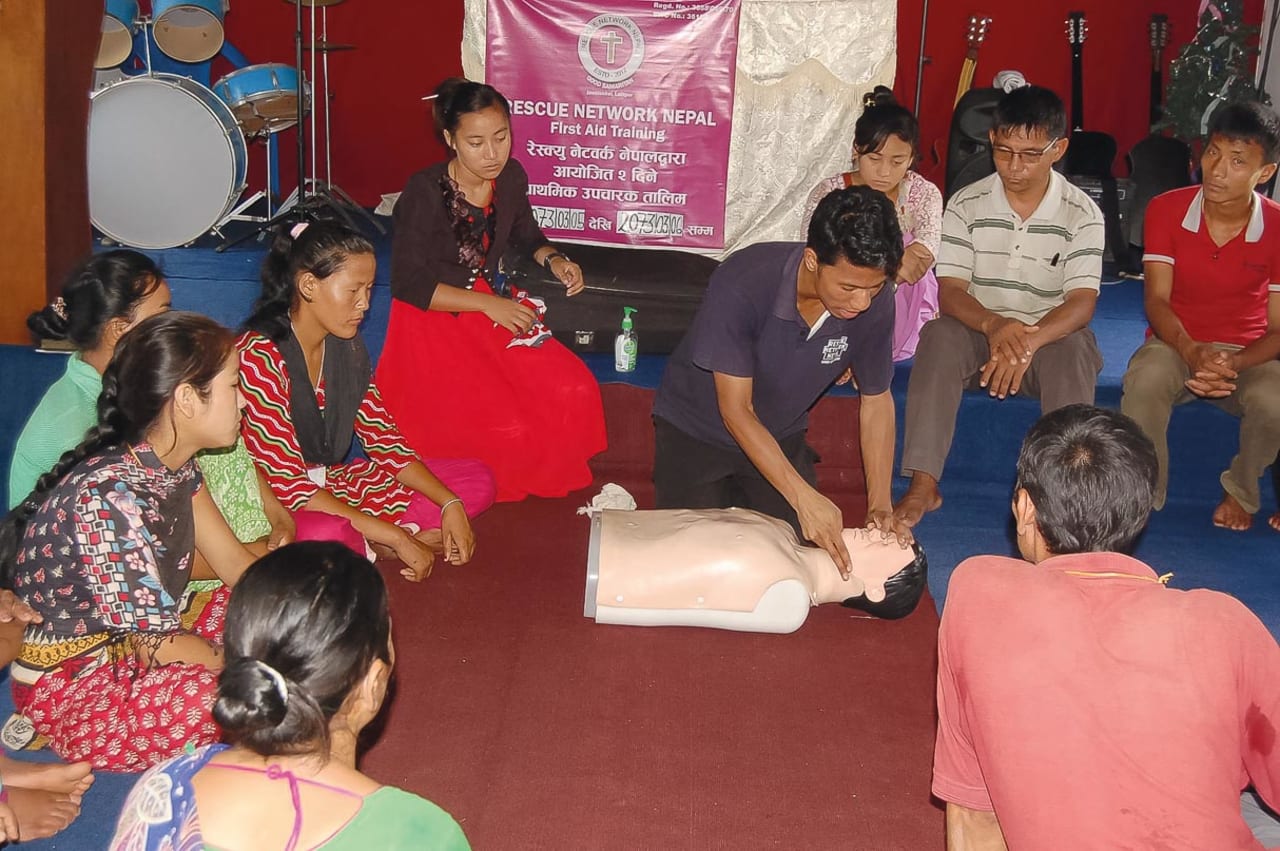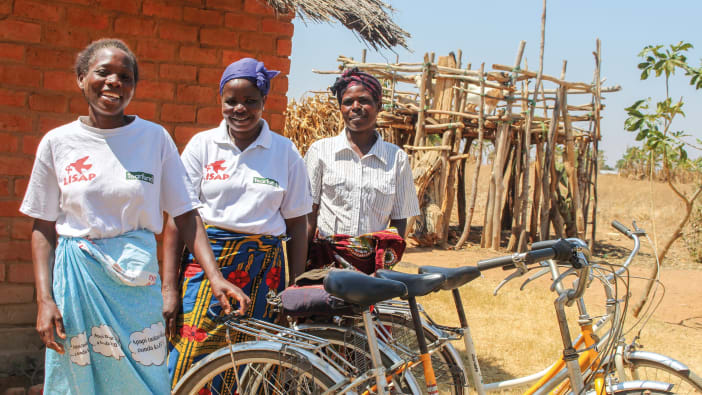In March 2011, I was working in a hospital in the city of Lalitpur, Nepal. One day we received a phone call. A road traffic accident had taken place in Lalbandhi, a town many hours’ drive away. The people at the scene did not know how to help the victims.
We could not think of a way to provide immediate help. Eventually, we contacted some friends in the area who took the victims to hospital. But this incident had made me think: there must have been a church near the accident site. This gave me a vision for training every church member in Nepal in first aid.
Many areas of Nepal are remote and hard to access, a long way from hospitals and clinics. But even in remote areas, there are churches. I realised that through local churches, we could form a network of first aiders across the country. So I decided to set up Rescue Network Nepal (RNN).
First steps
First, we formed a team with some doctors and wrote a training manual on first aid. We then visited churches in different locations and talked with the pastors about first aid training. If the pastors were interested, we ran training courses for their church members. Soon, the news about our courses spread, and now we receive more requests for training than we can fulfil.
How does the training work?
Each training session lasts for two full days. Ideally there should be between 15 and 25 participants. This ensures that each person will get enough individual attention. We always begin with devotion and prayer. After this, the majority of teaching is hands-on, practical learning. This helps participants to remember what they have learnt.
RNN trainers teach the group how to respond to major accidents – for example, how to dress wounds or perform resuscitation. They also train participants on how to treat more minor injuries, such as burns, broken bones, animal bites, snake bites, sprains and cuts.
Where possible, we focus on using local resources to treat injuries. For example, for splinting we use wooden sticks or any hard objects that are long and light, and for bandaging we use clean triangular bandages or scarves. We give each group a first aid kit and a stretcher, and provide training in how to use these.
The Rescue Network Zone
RNN has now trained 2,149 volunteers across Nepal. Rather than leave the trained communities to work individually, we help the community leaders share their contact details. We have created the Rescue Network Zone, a network running along the major roads across 29 districts. If a serious accident occurs and victims need to be transported to a distant hospital, the RNN members can receive help and additional medical supplies from the villages along the way. Similarly, if there is a natural disaster, these communities can now organise a response together.
Seeing the impact
We have heard many stories of church volunteers putting their training into practice. To give just one example, a mother named Sita was able to save the life of her young son when he choked on a biscuit. Sita said that without her RNN training, she would simply have panicked.
We have seen a great impact as a result of church volunteers offering first aid. As well as helping in emergencies, the volunteers also provide support at local gatherings such as sporting events. Community members know they can ask the volunteers whenever they need any help.
Discussion question
- Could some of your church members get trained in first aid and offer this service to your community? Red Cross/Red Crescent Societies and St John Ambulance offer training courses around the world.
Website: www.rnnepal.wordpress.com
Email: [email protected]










